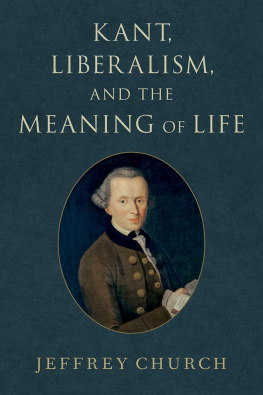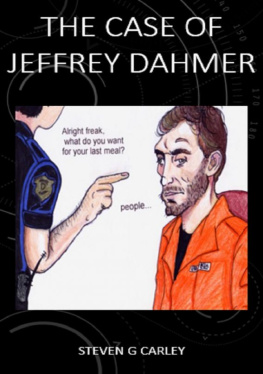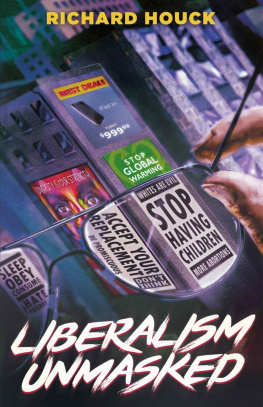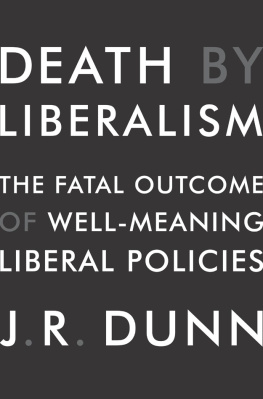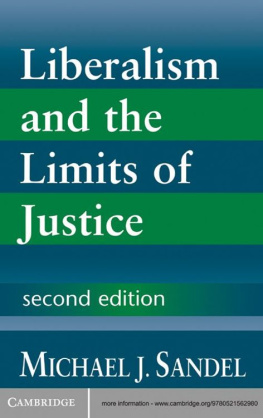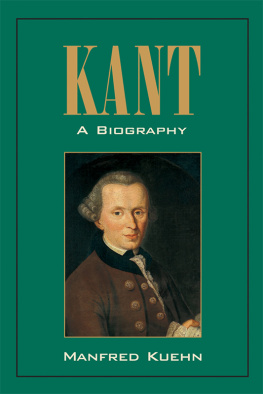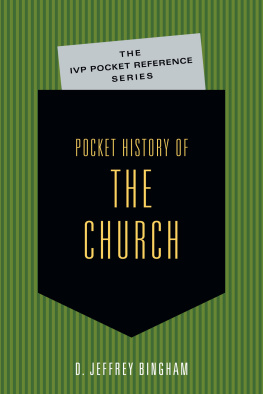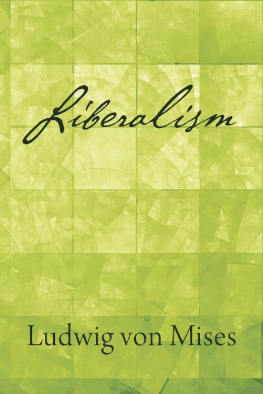Church Jeffrey - Kant, Liberalism, and the Meaning of Life
Here you can read online Church Jeffrey - Kant, Liberalism, and the Meaning of Life full text of the book (entire story) in english for free. Download pdf and epub, get meaning, cover and reviews about this ebook. year: 2022, publisher: Oxford University Press, Incorporated, genre: Religion. Description of the work, (preface) as well as reviews are available. Best literature library LitArk.com created for fans of good reading and offers a wide selection of genres:
Romance novel
Science fiction
Adventure
Detective
Science
History
Home and family
Prose
Art
Politics
Computer
Non-fiction
Religion
Business
Children
Humor
Choose a favorite category and find really read worthwhile books. Enjoy immersion in the world of imagination, feel the emotions of the characters or learn something new for yourself, make an fascinating discovery.
- Book:Kant, Liberalism, and the Meaning of Life
- Author:
- Publisher:Oxford University Press, Incorporated
- Genre:
- Year:2022
- Rating:4 / 5
- Favourites:Add to favourites
- Your mark:
- 80
- 1
- 2
- 3
- 4
- 5
Kant, Liberalism, and the Meaning of Life: summary, description and annotation
We offer to read an annotation, description, summary or preface (depends on what the author of the book "Kant, Liberalism, and the Meaning of Life" wrote himself). If you haven't found the necessary information about the book — write in the comments, we will try to find it.
Kant, Liberalism, and the Meaning of Life — read online for free the complete book (whole text) full work
Below is the text of the book, divided by pages. System saving the place of the last page read, allows you to conveniently read the book "Kant, Liberalism, and the Meaning of Life" online for free, without having to search again every time where you left off. Put a bookmark, and you can go to the page where you finished reading at any time.
Font size:
Interval:
Bookmark:


Oxford University Press is a department of the University of Oxford. It furthers the Universitys objective of excellence in research, scholarship, and education by publishing worldwide. Oxford is a registered trade mark of Oxford University Press in the UK and certain other countries.
Published in the United States of America by Oxford University Press
198 Madison Avenue, New York, NY 10016, United States of America.
Oxford University Press 2022
All rights reserved. No part of this publication may be reproduced, stored in a retrieval system, or transmitted, in any form or by any means, without the prior permission in writing of Oxford University Press, or as expressly permitted by law, by license, or under terms agreed with the appropriate reproduction rights organization. Inquiries concerning reproduction outside the scope of the above should be sent to the Rights Department, Oxford University Press, at the address above.
You must not circulate this work in any other form and you must impose this same condition on any acquirer.
CIP data is on file at the Library of Congress
ISBN 9780197633182
eISBN 9780197633205
DOI: 10.1093/oso/9780197633182.001.0001
For Sabine
Liberalism in practice in the United States and Europe has been largely elite-driven, technocratic, and friendly to free markets, yet its cosmopolitan, impersonal, bureaucratic governance has caused an acute feeling of disempowerment on the part of citizens. The neoliberal turn in many Western countries steadily evacuated moral language from politics, seeking to make it more pragmatic and materialistic, but attenuating the sense of communal purpose that holds all societies together. The ever-expanding inequality of wealth exacerbated the mistrust many populists have had with such elites who pretend to care for the welfare of all. Even though Western countries are now wealthier than ever, liberal governments nevertheless have become increasingly out of touch with the middle class and its moral needs for meaning, purpose, and belonging.
These worries about the anomie and alienation of liberal politics are not new, of course. Many scholars have diagnosed these ills long before the current moment. In 1996, for example, Michael Sandel argued that procedural liberalism, in bracketing morality and religion too completely, soon generates its own disenchantment. Where political discourse lacks moral resonance, the yearning for a public life of larger meaning finds undesirable expression. The Christian Coalition and similar groups seek to clothe the naked public square with narrow, intolerant moralisms. Fundamentalists rush in where liberals fear to tread (2005, 28). Sandels communitarian liberalism precisely aims to combat the atomizing tendency in contemporary liberalism.
More recently, as these scholars have predicted, left and right forms of populism have come to fill the meaning deficit left by liberalism and provided a sense of purpose for their adherents. On the right, the populist supporters of Donald Trump were animated by economic dislocation and cultural and racial resentment. The free market principles of the Republican Party increasingly appeared distant from the concerns of the white working class, benefitting only elites in business. Ronald Reagans liberalism has appeared less and less meaningful to this group. Instead, they became enthralled with Trumps populism, which sought to make America great again and uphold a form of conservative nationalism. This populism aimed to put America and (certain) Americans first, by, for example, ending free trade policies and severely restricting immigration. Trumps unexpected rise and unexpected continued appeal among Republicans points toward the sense of meaning and purpose that his illiberal exclusionary, pugilistic politics offered, that individuals could find meaning by contributing to the restoration of an authentic collective identity. Indeed, the dark inspiration of Trumpism was on full display on January 6, 2021, when a mob of Trump supporters stormed the U.S. Capitol building, in part due to Trumps relentless populist challenge to the rule of law in the wake of his loss in the 2020 presidential election.
At the same time, a populist reaction has emerged from the left as well. In 2016 and 2020, Bernie Sanders came very close to winning the Democratic nomination for President on a left-populist economic egalitarian platform. Sanders channeled the discontent of progressives who have held that the Democratic partys neoliberalism has failed to advance the causes of social and economic justice. Democratic elitesBill Clinton and Barack Obamajust like Republican elitesthe Bushesinstead protected the status quo and hampered grassroots activism. At the same time, the rise of identity politics has given individuals on the left another source of meaning and purpose. The persistence of inequality among historically marginalized groups casts doubt on the efficacy of neoliberal principles and practices to achieve genuine equality, and calls instead for grassroots marches, as well as efforts to topple symbols of racial or sexual hierarchy. At times, however, this identity politics has veered into illiberal activity, such as certain efforts to limit or even constrain freedom of expression, which has led to some individuals even to lose their jobs if they make an argument that unsettles progressive convictions.
The populisms of the left and the right pose a formidable challenge to liberalism in practice. Populism outcompetes liberalism by offering a sense of meaning and purpose for individual lives that liberalism fails to provide. Both forms of populism envision an urgent purpose that is conceived of as having fundamental value, and both confer on individual members the sense that each person can make a meaningful contribution to this common purpose. Liberalism in practice does not project a common purpose with fundamental moral value, and it conceives of individuals as subjects rather than agents, fungible rather than significant. Moreover, this populist challenge seems unlikely to be a temporary phenomenon. The polarization and sorting of American politics and culture have gradually increased with few efforts to reinforce a steadily disappearing center. Liberalism, it seems, stands in need of some rethinking and reformulating at a fundamental level. The task of political philosophy is to perform this radical thinking, to assess different models of liberalism to determine which is best simply and which is best for our time, or most practicable.
In this book, I use as my foil the most prominent and influential approach to liberalism in contemporary political philosophy, Kantian liberalism. John Rawls remains the most famous philosopher of neo-Kantian liberalism, even despite the cottage industry of critiques of his theory of justice and of political liberalism. Rawls liberalism is Kantian primarily in its formal, deontological character, or what argued that liberal societies, faced with the fact of reasonable pluralism of different views of the good life, should remain neutral with regard to disagreements about the good, and instead should focus on establishing the rules of justice that can command a widespread overlapping consensus among diverse worldviews. Liberal justice would thereby allow for private freedom in which individuals could pursue their distinct visions of the good.
Unfortunately, the neo-Kantian approach to liberalism seems unsuited to the challenges facing contemporary liberalism. Rawlsian liberalism was appropriate a generation ago, when Western societies were beset by conflicts between secular and religious views of the good life, and it could counsel bracketing these disagreements while converging on a shared conception of justice that could hold society together. However, today, liberal societies find themselves divided equally on views of justice as about the good, as illiberal populisms on the left and the right gain ever more adherents to their accounts of justice, hollowing out that overlapping consensus. It might be an interesting philosophical exercise to devise a theory of justice affirmed by ideal rational agents, but if these agents bear little resemblance to agents actually existing in contemporary liberal societies, then the theory has little use. In its formalism, its abstraction from our understanding of what is meaningful in life, such a theory has difficulty motivating individuals to affirm and adhere to these rational norms. Liberalism, in other words, needs more substance, more meaning, more purpose, in order to compete with these disintegrating populisms and integrate individuals into a common whole with a shared end.
Font size:
Interval:
Bookmark:
Similar books «Kant, Liberalism, and the Meaning of Life»
Look at similar books to Kant, Liberalism, and the Meaning of Life. We have selected literature similar in name and meaning in the hope of providing readers with more options to find new, interesting, not yet read works.
Discussion, reviews of the book Kant, Liberalism, and the Meaning of Life and just readers' own opinions. Leave your comments, write what you think about the work, its meaning or the main characters. Specify what exactly you liked and what you didn't like, and why you think so.

